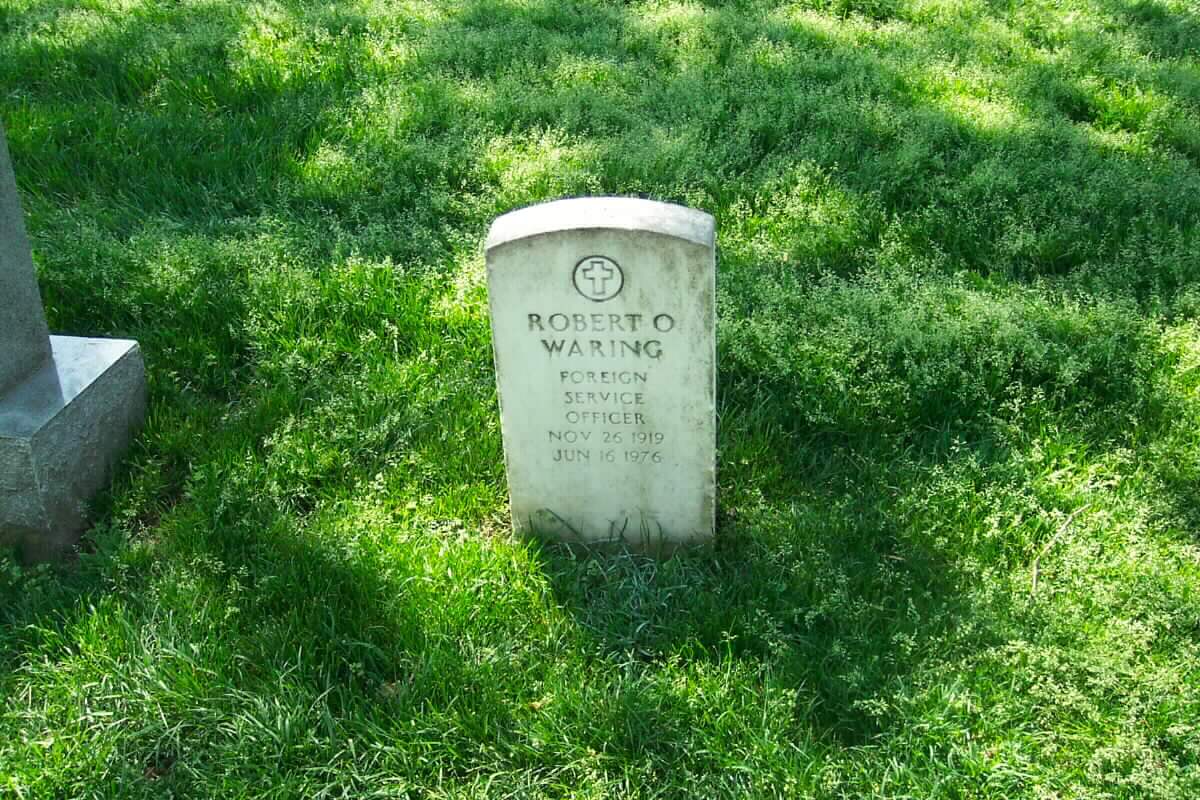June 16, 1976, Beirut, Lebanon. Frances E. Meloy, U.S. Ambassador to Lebanon, and Robert O.Waring, the U. S. Economic Counselor, were kidnapped by Popular Front for the Liberation of Palestine members as they crossed a militia checkpoint separating the Christian from the Muslim sections of Beirut. They were later shot to death.
13 March 1996:
A Lebanon appeals court has freed two former Muslim guerrillas convicted in the 1976 kidnapping and killing of U.S. Ambassador Francis E. Meloy, his economic counselor, Robert O. Waring, and their Lebanese driver.
A three-judge panel ruled Wednesday that the defendants, Bassem Farkh, 39, and Namek Kamal, 46, were covered under a 1990 amnesty relating to political crimes committed during Lebanon's civil war.
Both had been sentenced to death by a lower court in 1994.
Meloy, Waring and their driver, Mohammed Moghrabi, disappeared in June 1976 at a militia checkpoint as they crossed the Green Line, the division between Beirut's Christian and Muslim sectors. Their bullet-riddled bodies were found a short time later in mainly Muslim west Beirut, which was then controlled by PLO Chairman Yasser Arafat's guerrillas.
There was no immediate comment on the guerrillas' release from the U.S. Embassy in Beirut.
Gerald R. Ford
Remarks on the Assassination of U.S. Embassy Officials in Lebanon
June 16, 1976
The Assassination of our Ambassador in Beirut, Francis E. Meloy, Jr., and of our Counselor for Economic Affairs, Robert O. Waring, and of their driver is an act of senseless, outrageous brutality. I extend to their families my own deep sense of sorrow and that of all the American people.
These men were on their way to meet with President-elect Sarkis. They were on a mission of peace, seeking to do what they could in the service of their country to help restore order, stability, and reason to Lebanon. Their deaths add another tragedy to the suffering which the Lebanese people have endured beyond measure.
These men had lived with danger for many weeks and did so with dedication and disregard of personal safety, as we have come to expect of the Foreign Service.
The goals of our policy must remain unchanged. The United States will not be deterred in its search for peace by these murders. I have instructed Secretary Kissinger to continue our intensive efforts in this direction.
I will name a new Ambassador to Lebanon within the very near future to resume the mission of Ambassador Meloy, which he performed so brilliantly.
I have also instructed the Secretary to get in touch with all of the governments in the area and with the Lebanese leaders to help identify the murderers and to see that they are brought to justice. I have also ordered that all appropriate resources of the United States undertake immediately to identify the persons or groups responsible for this vicious act.'
Those responsible for these brutal assassinations must be brought to justice. At the same time, we must continue our policy of seeking a peaceful solution in Lebanon. That is the way we can best honor the brave men who gave their lives for this country and for the cause of peace.
NOTE: The President spoke at 4:05 p.m. to reporters assembled in the Briefing Room at the White House.
On June 17, 1976, the White House announced that the President had designated Ambassador L. Dean Brown as his Personal Representative to go to Damascus, Syria, to accompany the bodies of slain American officials when they were returned to the United States.
Robert O.Waring
U.S. Economic Counselor
Kidnapped and shot by Palestine's PFLO
Beirut, Lebanon
Michael Robert Patterson was born in Arlington and is the son of a former officer of the US Army. So it was no wonder that sooner or later his interests drew him to American history and especially to American military history. Many of his articles can be found on renowned portals like the New York Times, Washingtonpost or Wikipedia.
Reviewed by: Michael Howard

